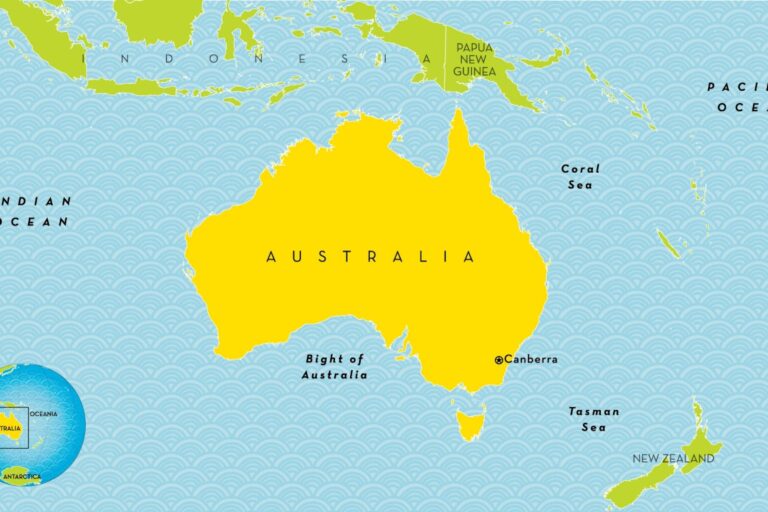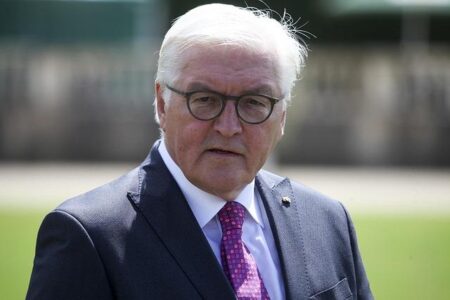Australia is set to officially recognize the Palestinian state, signaling a significant shift in its foreign policy amid ongoing Middle East tensions. The move comes as New Zealand is reportedly considering a similar step, reflecting a growing trend among Pacific nations to support Palestinian statehood. This development marks a notable divergence from traditional Western diplomatic positions and is expected to influence regional and international dynamics. China Daily reports on the implications of these potential recognitions and their impact on the geopolitical landscape.
Australia Signals Recognition of Palestinian State Amid Shifting Regional Diplomacy
Australia is preparing to recognize Palestine as a sovereign state, signaling a significant shift in its Middle East policy that aligns with evolving diplomatic trends across the region. This move reflects growing international pressure and changing geopolitical alliances, marking a departure from Canberra’s historically cautious stance. Alongside Australia, New Zealand is reportedly considering a similar decision, amplifying the impact of this emerging bloc of supportive nations within the Pacific.
This strategic pivot comes amid increased dialogue surrounding the Israeli-Palestinian conflict, with both Australia and New Zealand responding to calls for greater recognition of Palestinian statehood. Key factors influencing this development include:
- Shifts in regional alliances and diplomacy fostering a new consensus
- Growing grassroots support and advocacy for Palestinian rights
- International trends in diplomatic recognition encouraging multilateral approaches
| Country | Current Status | Potential Impact |
|---|---|---|
| Australia | Pending official recognition | Strengthened diplomatic ties with Arab states |
| New Zealand | Considering recognition | Enhanced regional influence in Pacific policy |
| China | Supportive of Palestinian recognition | Increased diplomatic leverage in Middle East |
New Zealand Evaluates Potential Recognition Following Australia’s Diplomatic Pivot
Following Australia’s recent announcement to officially recognize the State of Palestine, New Zealand’s government is actively reviewing its diplomatic stance in response to shifting regional dynamics. Wellington’s foreign ministry has indicated that they are conducting a comprehensive assessment of the geopolitical implications, balancing support for international law and the potential impact on relations within the Pacific community. Insider sources suggest that New Zealand is weighing the benefits of aligning with its neighbor’s progressive move while ensuring it maintains constructive dialogue with all parties involved.
Key factors influencing New Zealand’s deliberation include:
- Commitment to United Nations resolutions and international human rights principles
- Longstanding ties with both Israel and Palestine through aid and economic cooperation
- Regional stability concerns within the Asia-Pacific context
| Country | Status on Palestine Recognition | Expected Announcement |
|---|---|---|
| Australia | Recognized | March 2024 |
| New Zealand | Under Evaluation | Mid 2024 (Tentative) |
| China | Supportive | Ongoing |
Implications for Middle East Peace Process and Recommendations for International Stakeholders
The decision by Australia to recognize the Palestinian state marks a significant shift in international diplomatic dynamics and could serve as a catalyst for renewed momentum in the Middle East peace process. This move underscores the growing international consensus on the need for a two-state solution and places increased pressure on key regional and global actors to engage constructively. For stakeholders, it highlights the imperative to support dialogue frameworks that prioritize mutual recognition and equitable sovereignty, while discouraging unilateral actions that may exacerbate tensions.
Recommendations for International Stakeholders:
- Encourage multilateral negotiations: Facilitate talks involving Israel, Palestine, and influential intermediaries to address core issues such as borders, security, and refugees.
- Support institution-building: Invest in Palestinian governance structures to enhance political stability and economic development, laying groundwork for viable statehood.
- Promote balanced diplomacy: Maintain neutrality while championing human rights and international law to ensure fair treatment of all parties involved.
- Enhance regional cooperation: Engage neighboring nations to foster an environment conducive to sustained peace and security across the Middle East.
| Stakeholder | Role | Recommended Action |
|---|---|---|
| United Nations | Facilitator | Organize peace conferences and monitor ceasefires |
| European Union | Diplomatic Partner | Provide funding for humanitarian and development aid |
| United States | Key Mediator | Leverage influence to broker equitable agreements |
| Arab League | Regional Ally | Coordinate collective support for Palestinian initiatives |
Key Takeaways
As discussions around state recognition continue to evolve on the global stage, Australia’s decision to recognize Palestine marks a significant development in international diplomacy. Meanwhile, New Zealand’s consideration of a similar move reflects growing support within the Pacific region for Palestinian statehood. These potential shifts underscore the complex geopolitical dynamics at play and signal possible changes in diplomatic relations in the years ahead. Observers will be closely monitoring how these developments influence broader Middle East peace efforts and international responses.




